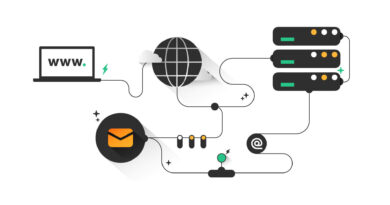Mastering SEO: Your Ultimate Guide to Outranking Competitors
Mastering SEO
In today’s digital landscape, Search Engine Optimization (SEO) is more than just a buzzword—it’s a critical tool for any business looking to enhance its online visibility. This comprehensive guide aims to arm you with the knowledge and strategies necessary to outrank your competitors and dominate search engine results pages (SERPs).
What is SEO and Why is it Crucial?
SEO refers to the practice of optimizing your website to rank higher in search engine results. The primary goal is to increase organic traffic, which is the traffic that comes to your site from search engines like Google, Bing, and Yahoo. By improving your SEO strategy, you can ensure that your website appears at the top of search results when potential customers search for relevant keywords.
Key Components of SEO
To truly understand how to master SEO, it’s essential to break down its primary components:
- On-Page SEO
- Off-Page SEO
- Technical SEO
- Content Marketing
On-Page SEO: The Foundation of High Rankings
On-Page SEO involves optimizing individual pages on your website to rank higher and earn more relevant traffic. This includes several key elements:
1. Keyword Research and Optimization
Keywords are the phrases or terms that users enter into search engines. Effective keyword research is the cornerstone of any successful SEO strategy. Tools like Google Keyword Planner, Ahrefs, and SEMrush can help you identify high-traffic, low-competition keywords that are relevant to your business.
- Primary Keywords: These are the main keywords that best describe your business or the content of a specific page.
- Secondary Keywords: These are related to the primary keywords and provide context to the content.
Proper keyword placement in your meta titles, headings, and content can significantly impact your search rankings. However, avoid keyword stuffing, as it can lead to penalties from search engines.
2. Meta Tags Optimization
Meta tags, including the meta title and meta description, play a crucial role in how your site appears in search results. A well-crafted meta title and description not only improve your SEO but also enhance click-through rates (CTR).
- Meta Title: Should include the primary keyword and be compelling enough to attract clicks.
- Meta Description: A brief summary of the page content that also includes the primary keyword and a call-to-action (CTA).
3. High-Quality Content
Content is king in SEO. Search engines prioritize websites that offer valuable, relevant, and comprehensive content. Ensure your content is:
- Original: Avoid duplicate content at all costs.
- Informative: Address the needs and queries of your audience.
- Engaging: Use a mix of text, images, videos, and infographics to keep your audience engaged.
- Updated Regularly: Keep your content fresh and up-to-date.
4. Internal Linking
Internal links are links that point to other pages within your website. They help search engines understand the structure of your site and the relationship between different pages. Strategic internal linking can improve the authority of your pages and boost their rankings.
Off-Page SEO: Building Authority and Trust
Off-page SEO refers to all the activities you do outside of your website to improve its ranking. The most important element of off-page SEO is backlinking.
1. Building High-Quality Backlinks
Backlinks are links from other websites to your site. They act as votes of confidence for your content. However, not all backlinks are created equal. Focus on acquiring high-quality backlinks from reputable and relevant websites.
- Guest Blogging: Writing articles for other websites in your industry with a link back to your site.
- Influencer Outreach: Collaborating with influencers who can share your content with their audience.
- Content Promotion: Sharing your content on social media and other platforms to attract links.
2. Social Signals
While social media activity isn’t a direct ranking factor, it can significantly influence your SEO efforts. High engagement on social platforms can lead to increased visibility and more backlinks.
Technical SEO: The Backbone of Your Website’s Performance
Technical SEO involves optimizing the backend of your website to ensure that search engines can crawl and index it effectively.
1. Website Speed Optimization
A fast-loading website is crucial for both user experience and SEO. Google considers site speed as one of its ranking factors. Use tools like Google PageSpeed Insights to analyze and improve your website’s load time.
2. Mobile-Friendliness
With the majority of searches now conducted on mobile devices, ensuring your website is mobile-friendly is essential. Implement responsive design so your site adapts seamlessly to different screen sizes.
3. Secure Sockets Layer (SSL)
Google gives preference to websites that use HTTPS over those that don’t. An SSL certificate not only secures your website but also improves your SEO ranking.
4. XML Sitemaps and Robots.txt
An XML sitemap helps search engines understand the structure of your website and find all your pages. The robots.txt file tells search engines which pages they should or shouldn’t crawl.
Content Marketing: The Fuel for Your SEO Engine
Content marketing and SEO go hand in hand. By creating and promoting high-quality content, you can attract and retain an audience, build brand authority, and ultimately improve your SEO.
1. Blogging
Regularly publishing blog posts allows you to target a wider range of keywords, answer questions your audience may have, and demonstrate your expertise in your industry.
2. Video Content
Video is one of the most engaging forms of content and can significantly boost your SEO. Platforms like YouTube are powerful search engines in their own right.
3. Infographics
Infographics are visually appealing and can help explain complex topics in a simple way. They are also highly shareable, which can lead to more backlinks.
4. Case Studies and White Papers
In-depth content like case studies and white papers can establish your authority in your industry and attract high-quality backlinks.
Monitoring and Adjusting Your SEO Strategy
SEO is not a one-time effort but an ongoing process. Regularly monitor your SEO performance using tools like Google Analytics and Google Search Console. Keep track of your rankings, traffic, and user behavior. Be ready to adjust your strategy based on what the data tells you.
Conclusion: Take Control of Your SEO Today
By mastering the components of SEO—On-Page SEO, Off-Page SEO, Technical SEO, and Content Marketing—you can significantly improve your website’s visibility and outrank your competitors. SEO requires time, effort, and continuous learning, but the results are worth it.
If you want to read more information about how to boost traffic on your Website just visit: SEO




